No. 37
Work safely
Routine chores can lead to ER visits
When it comes to homeowner hazards, it’s the minor jobs that lead the list of major injuries. A homeowner cleaning gutters or even changing a ceiling lightbulb is more likely to get hurt than the electrician working with high-voltage cables. So here are some ways to stay safe while caring for your home.
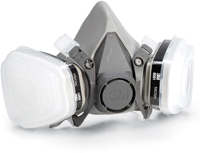
Protect your brain
Fumes from solvents, adhesives and paints can make you nauseated or dizzy. But it gets worse: Those fumes can also damage your brain or lungs. Occasionally, they even kill users. Good ventilation—open doors and windows—is your first defense. Also wear a respirator with replaceable carbon filters.
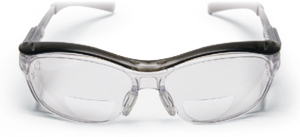
Protect your eyes
Of all homeowner hazards, eye injuries are the easiest to prevent. Just wear safety glasses. They’re so cheap that you can keep pairs handy anywhere you might need them: the garage, basement and shed. And don’t just wear them when using power tools. Eyes get injured in surprising circumstances—while trimming bushes, spray painting, blowing leaves….
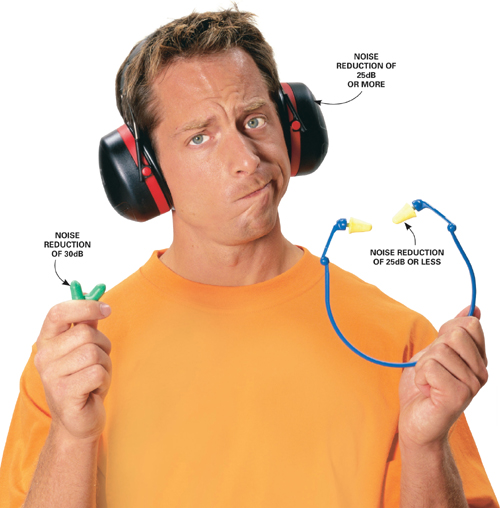
Protect your ears
Sure, the risk of hearing damage is highest for those who use loud equipment every day. But if you use a shop vacuum, leaf blower or circular saw without hearing protection, you’re doing permanent damage every time. And that’s just dumb because protecting your ears is so easy. The goal is to reduce noise levels to 90dB. All forms of hearing protection—earmuffs, disposable foam earplugs, reusable plugs—are adequate for most noise. With super-loud equipment like chain saws, it’s smart to use both plugs and earmuffs.
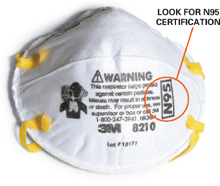
Protect your lungs
Dust isn’t just a sneeze-inducing nuisance—heavy repeated doses can lead to severe allergic reactions and even harm your lungs. You can buy a dust mask for as little as 50 cents, but don’t. Instead, spend a few bucks on one with an “N95” certification. You’ll get a mask that’s more comfortable and truly effective at keeping dust out of your lungs.
Safe ladder setup
Ladder safety starts with careful setup. Sloppy setup leads to falls, even if you climb cautiously.
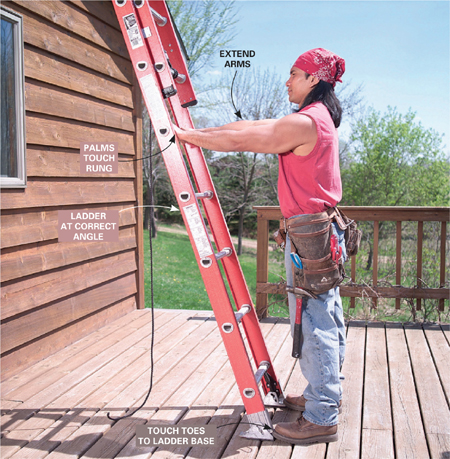
Set the angle
Setting a ladder at the correct angle is the key to stability. Too steep and it can slide sideways or tip backward. If not steep enough, the feet may slip. To get it right, put your toes against the ladder’s feet. Stand straight up and extend your arms. Your palms should just reach the ladder’s rung.
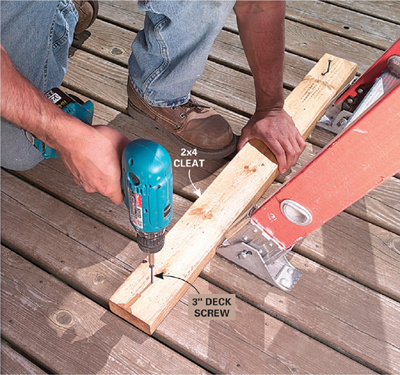
Anchor the feet
Make sure the ladder can’t slip out from under you. Sweep off hard surfaces and make sure the ladder’s shoe pads are clean. On a deck, screw down a cleat to lock the ladder in place. On concrete, you can often secure the ladder against something heavy like a lawn tractor. On soft ground, flip up the shoes so the spurs can bite into the soil.
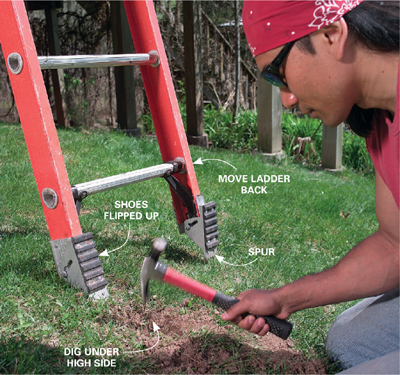
Stand it straight up
A ladder that’s leaning left or right on uneven ground can slip sideways and take you for a life-threatening ride. Don’t straighten a leaning ladder by setting one foot on bricks or blocks. Instead, dig a shallow hole to level the feet. Then, before you climb, jump hard on the lowest rung a couple times to make sure the ladder doesn’t tilt.
Voice of experience
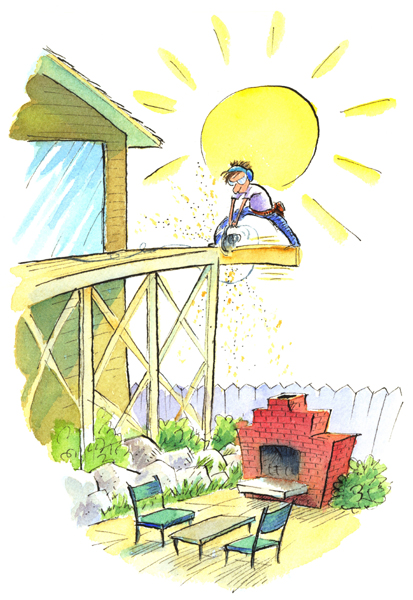
Heat makes you dumb
Building a deck on a 100-degree afternoon, I stood on an overhanging joist as I cut it off. When the joist went down, I went down. How could I do anything so incredibly stupid? The ER doctor explained that heat doesn’t just make you miserable—it also bakes your brain. Along with dehydration, it impairs your judgment, slows your reaction time and greatly increases your odds of injury. Take frequent water breaks, or better yet, wait for cooler weather.

Peter Karpf, The Family Handyman Field Editor
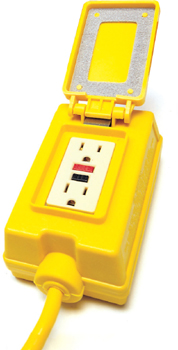
Don’t get zapped
House chores—especially outdoors—often bring water and electricity together. The best way to make those situations safer is to use a GFCI (ground-fault circuit interrupter). Newer homes have GFCI protection in bathroom, kitchen, garage and exterior outlets, but those GFCIs may no longer offer protection after 10 years or so. To be safe, plug your leaf blower into a GFCI extension cord before you venture into the wet grass.
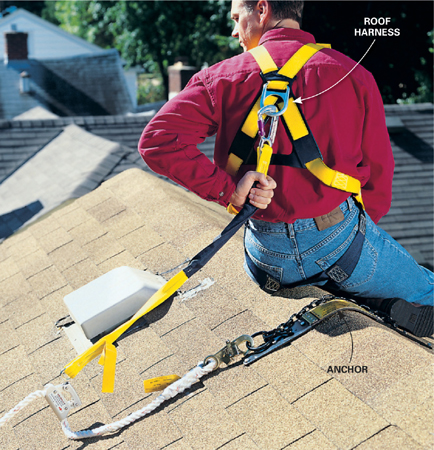
Don’t fall off the roof
If you get on your roof every fall to clean the gutters, consider buying a personal fall arrest system (aka “roof harness”). For around $100, you can buy a kit, install permanent or temporary anchors in key spots and tether your harness to them for the ultimate in roof safety.
Don’t blow up the house
The flammable fumes that evaporate from some adhesives, solvents or paints will ignite if they reach a flame. Check the label. If you see warnings about flammable vapors, don’t use the product near gas water heaters or other appliances with pilot lights. Candles, small engines—anything that might flame or spark—can also trigger an explosion.
Voice of experience
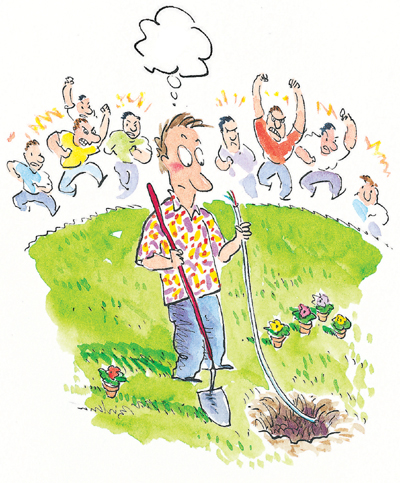
Call 811 before you dig
That’s all it takes to get your utility lines marked. And it’s absolutely free. Think about it: Hitting a power or gas line can kill you (or leave you with a huge bill from the utility company). Slicing through a cable TV line can also be life-threatening, as I learned one Super Bowl Sunday.

Jeff Gorton, The Family Handyman Associate Editor












